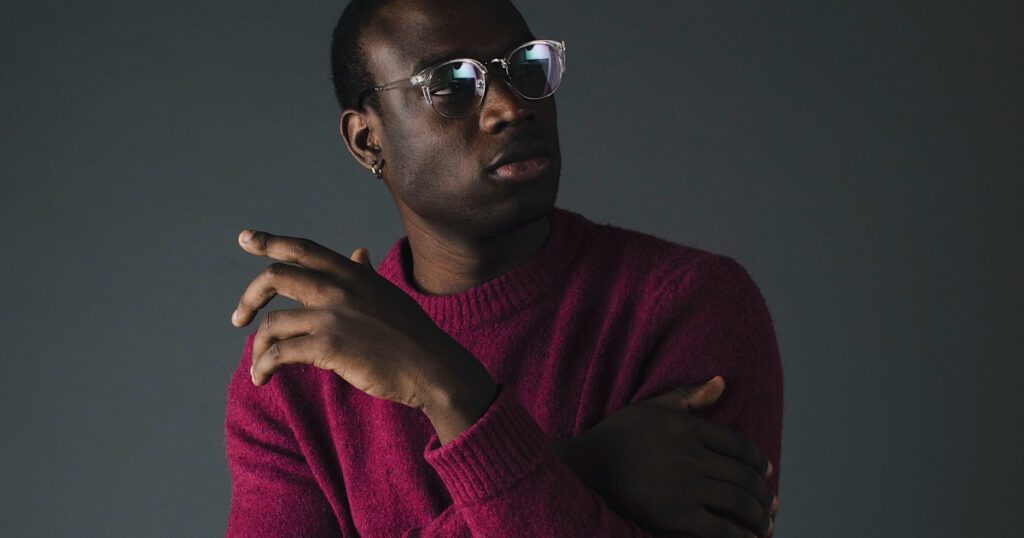
Is a Master's Degree in Homeland Security Worth It?
A master's in homeland security prepares students for careers in [...]

There are a lot of great reasons to get a psychology degree. The U.S. Bureau of Labor Statistics reports that jobs for clinical and counseling psychologists are expected to grow over the next decade,. There are also plenty of jobs for psychology majors who decide not to become practicing psychologists. People with psychology degrees work in fields like human resources, social services, marketing, sales, and education.
Enrollment in psych programs is growing, and colleges and universities are increasingly creating psychology programs for non-traditional students, part-time students who need flexibility, and full-time students who need to—or prefer to—study remotely. These online psychology programs are the ideal choice for busy working professionals, students who are juggling other responsibilities, and students who, for whatever reason, can’t study on campus.
Don’t make the mistake of assuming that these distance-degree programs are less rigorous than traditional programs. Students who study psychology online at the associate’s degree, bachelor’s degree, and master’s degree levels typically take the same courses with the same professors, complete the same assignments, and accrue the same number of credit hours to graduate as their on-the-ground peers. They are also just as likely to graduate as on-campus students. And, they receive the same diplomas, good news for anyone who has ever worried that future employers might be biased against online degrees.
“You’re not dumbing down anything simply because it’s online,” according to psychology professor Diane Finley, who teaches online for Prince George’s Community College and the University of Maryland – University College. “It’s just a different delivery format.”
Finding the right online psychology degree program is still essential, however. Accreditation matters, and some schools are more successful than others at training aspiring psychologists.
In this article, we list the top online psychology degrees and cover:
In almost all cases, students opt for online psychology degrees over on-campus programs because they want or need flexibility. Enrolling in a traditional psychology degree program means having to be on-campus at prescribed hours each week and sitting for exams on set dates and at set times. The best online psychology degree programs offer students different degrees of flexibility, so they can balance learning with their professional and personal responsibilities.
Some online psychology degree programs still require students to attend live remote classes on specific days at set times. Others are partially or entirely self-directed, which means students view pre-recorded lectures, participate in discussions, and complete assignments on their own schedules. Studying online also allows students with high grades and qualifications the opportunity to enroll in top psychology programs without having to relocate.
| University and Program Name | Learn More |
|
Merrimack College:
Master of Science in Clinical Mental Health Counseling
|
The answer depends on what degree or degrees you earn. You can’t become a licensed clinical psychologist or counseling psychologist with an online Bachelor of Science or Bachelor of Arts in Psychology. A handful of states allow people with master’s degrees in psychology to become practicing clinical therapists, but most don’t. If your goal is become a psychotherapist, you’ll most likely need to earn a doctoral degree in psychology (either a PhD or a PsyD).
About half of bachelor-level psychology graduates don’t go back to school to get advanced degrees in psychology. After studying the field of psychology, these students launch careers in:
There are careers in every industry for people who have studied human behavior and decision-making. There are even some entry-level jobs related to psychology and counseling that are open to undergrad psych majors. After earning online bachelor’s degrees in psychology, students work in substance abuse programs, research, and applied behavior analysis.
In states like Alaska, Kentucky, Oregon, Vermont, and West Virginia, it’s possible to work independently in mental health counseling with an online master’s degree. However, more master’s degree holders work in roles like:
You might think online classes would be substantially cheaper than on-campus courses. No classrooms to heat or maintain, no need for residences or food services: these represent potentially significant savings for schools. In reality, however, that’s rarely the case.
US News & World Report has also looked at the relative costs of online and on-campus education. It found that online degrees are sometimes, but not always, more expensive than traditional degrees. Some surveys have found that most colleges and universities charge online students higher annual tuition. Others have found that the majority of schools charge the same per-credit tuition regardless of whether students study on campus or online.
It also found that it can be hard to tell at first glance how expensive a program actually is. “Students should really be cautious about how tuition and fees are structured,” Lynette M. O’Keefe, director of the Online Learning Consortium’s Research Center for Digital Learning and Leadership, told the publication. “Are they paying by the credit hour, by the course, are they paying for the whole semester at a time, a flat rate? These are all different ways colleges charge for their courses.”
That doesn’t mean these degrees are necessarily expensive. According to U.S. News & World Report, it’s possible to earn an online psychology bachelor’s degree for just over $15,000 (the in-state tuition for online students at the University of Florida). However, many online degree programs in psychology cost between $30,000 and $40,000—and plenty are a lot more expensive than that.
There are two types of online psychology bachelor’s degrees: the online Bachelor of Science in Psychology and the online Bachelor of Arts in Psychology. The main difference between these two educational pathways is that BA programs tend to include more liberal arts courses, while BS programs may require students to take more math and science courses in addition to core psychology courses. Students in both programs take classes in:
In general, online master’s-level psychology programs cover the same topics as traditional programs. Master’s-level psychology degree programs can have general or specialized curricula, depending on whether students choose a concentration (more on that below). Students in all on-campus and online Master of Science in Psychology and Master of Arts in Psychology programs study:
Earning a master’s degree in psychology online also usually involves supervised hands-on experience in a clinical setting. Most programs help students locate internship opportunities local to them, but in some cases, distance learners may need to arrange their own practicum experiences to meet program requirements.
Concentration options typically vary by program. Some schools offer on-campus and online students the same concentration options, while other online programs don’t offer students any concentration options at all. Some master’s-level psychology concentrations a university might offer include:
Because online courses can be expensive to produce, many schools only offer specializations in areas that attract the most students. For this reason, online specialization options tend to be less diverse and more mainstream than on-campus options.
There are strong online psychology degree programs at the bachelor’s degree level at:
The top online psychology degree programs at the master’s level can be found at:
There are no fully online doctoral-level education programs in clinical psychology, counseling psychology, or applied psychology. The American Psychological Association’s Commission on Accreditation has adopted regulations that prohibit the accreditation of PhD and PsyD programs that are conducted primarily or entirely online. Accredited psychology doctorate programs can have a limited online component. Even so, the APA believes that a high-quality doctoral-level psych program must have sufficient in-person interaction between students and faculty.
The organization hasn’t published specific limitations regarding distance learning in PhD and PsyD programs. Rather, it assesses each program on a case-by-case basis.
There are upsides and downsides to studying psychology online. The biggest pro is that online psychology degree programs allow students to continue working, taking care of kids, and meeting other obligations.
The biggest con may be that completing an online degree program requires a lot of discipline. Even when an online psychology degree program involves tuning in for live classes and real-time class discussions, students have to be self-directed learners to make it to graduation. Some people are more likely to succeed in an environment where they’ll have plenty of face-to-face interaction with professors and peers. Other students can set and meet their own deadlines—no outside motivation required.
There’s one more con to consider. Sometimes, concentration or specialization options that are offered on-campus are not available to students studying online. Students who want to specialize in a specific area of psychology (e.g., child psychology or neuropsychology) may discover that the concentrations they’re looking for aren’t offered online at their first-choice schools.
There was a time when some colleges and universities awarded different degrees to on-campus and online students, but these days most schools award the same degrees regardless of how and where students study. It makes sense, given that online and distance learners almost always have to complete the same coursework and meet the same degree requirements.
If you do enroll in an online psychology degree program, chances are that there will be nothing at all on your diploma to indicate that you were a distance learner. You don’t need to disclose that you studied online when applying for jobs unless you want to. And if you do, it’s unlikely at this point that prospective employers will have any biases against online programs—especially if you can attend one of the highly-regarded programs we list above.
Questions or feedback? Email editor@noodle.com

A master's in homeland security prepares students for careers in [...]

Domestic violence call centers in the US field 20,000 calls [...]

If you're passionate about improving service members' quality of life [...]

Pediatric social worker means much more than the job title [...]

If you're passionate about improving older adults' quality of life [...]
Categorized as: Psychology, Social Work & Counseling & Psychology